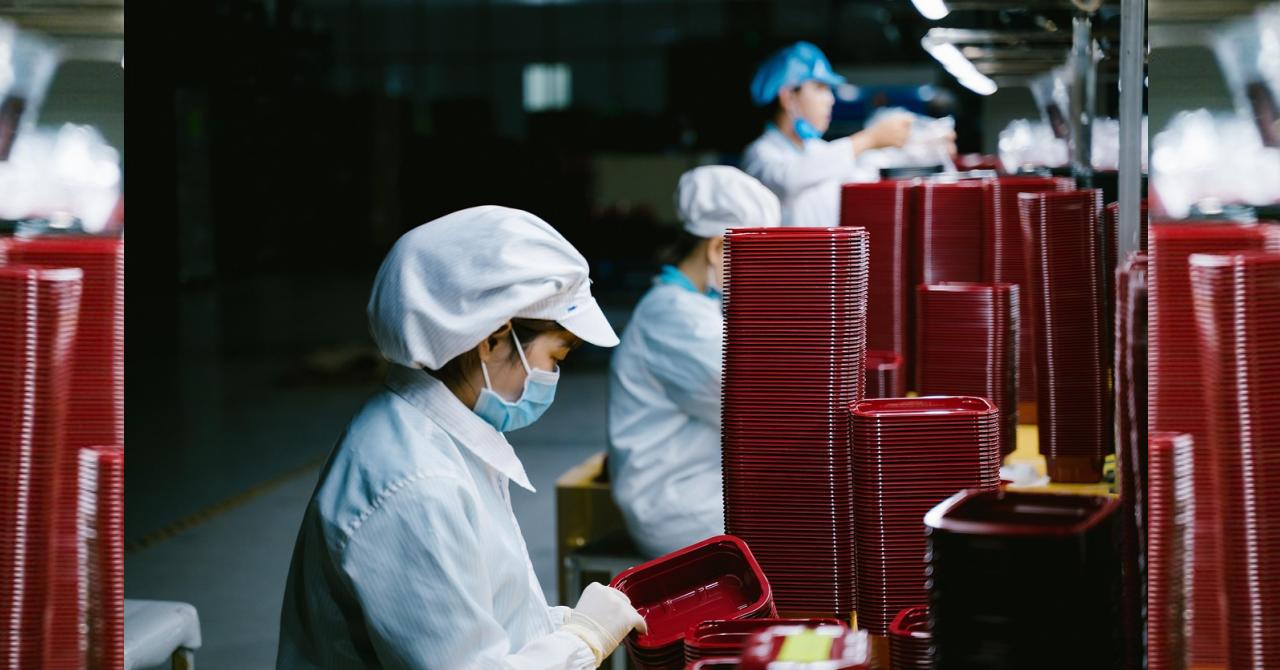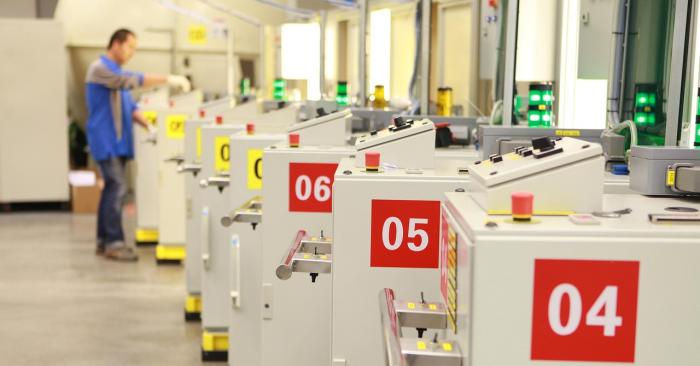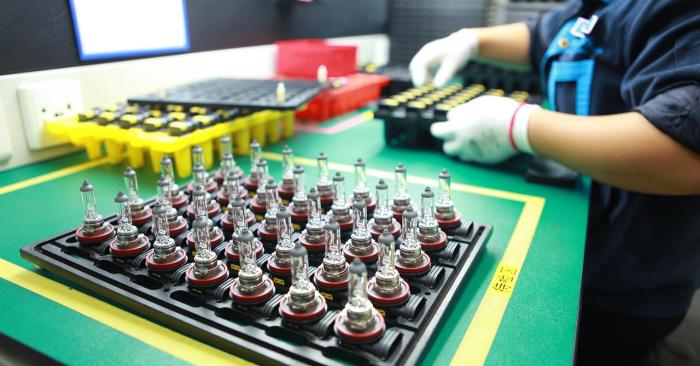Over the years, the manufacturing sector in Taiwan has grown steadily, particularly the electronics and technology industry. As a result, there has been a continuous demand for factory workers, including local as well as foreign workers.
If you are among those who want to work abroad, earn good income, and gain many benefits, considering applying for a factory worker job in Taiwan. There are many opportunities for different types of work in the country’s growing manufacturing industry.

OFWs Can Apply for These Jobs in Taiwan’s Factories
The manufacturing industry plays a major role in Taiwan’s economy, providing jobs to numerous local and foreign workers, too. In many places across the country, there are factories engaged in designing and creating in-demand products, from food to electronics to hi-tech machinery. Overall, this sector has enabled Taiwan’s businesses to grow, expand, and contribute to the economy as a whole.
Major Sectors
In recent years, the major sectors that have rapidly grown and continue to manufacture high quality products in Taiwan include electronics and ICT (Information and Communications Technology), machinery, and the chemical industry.
Companies such as ASE Technology Holding, MediaTek, Novatek Microelectronics, Realtek, Taiwan Semiconductor Manufacturing Company (TSMC), and United Microelectronics (UMC) have boosted the country’s electronics and ICT sector — producing materials that are used in laptops, mobile phones, tablets, and other gadgets. Notably, many overseas Filipino workers (OFWs) have been hired by these companies.
Likewise, factories that produce automation equipment, robotics, tools, and other machinery are also booming. The same goes for the chemical industry, which produces plastics, chemicals, and other materials that are in-demand, both locally and internationally.
Common Types of Jobs in Taiwanese Factories
Taiwan’s biggest factories are usually comprised of hundreds — if not thousands — of workers and staff, each of which play a significant role in the company. These jobs often include production line workers, machine operators, technicians, engineers, quality control inspectors, warehouse personnel, and administrative staff. Overseeing daily operations are leadership positions held by team leaders, supervisors, managers, directors, and chief executives.
Let’s take a closer look at the roles and responsibilities of each type of job in the factory:
Production Line Workers
Production line workers are typically responsible for assembling materials, packaging finished products, and preparing them for shipment. They work in teams, overseen by leaders and supervisors; together, all of them aim to meet daily production targets and deadlines.
Machine Operators
As the term says, machine operators run and maintain the machinery used in factories, be it manual or computer-controlled equipment. Also known as “production operators,” they undergo specialized training to use different types of machines, following safety protocols and minimizing hazards.
Manufacturing Technicians
There are different types of manufacturing technicians: electro-mechanical technicians, equipment technicians, field service technicians, production technicians, safety technicians, service technicians, and many more. They also perform various tasks, including maintenance, repair, and troubleshooting of problems.
Together with other workers, manufacturing technicians make sure that the factory’s daily operations meet the target product quantity and quality.
Manufacturing Engineers
Engineers possess expert knowledge and skills that are applied to all aspects of factory operations, including product design, development, packaging, and so on. Depending on the type of products made, factories hire different types of engineers, such as: chemical engineers, product design engineers, industrial engineers, mechanical engineers, process engineers, and quality assurance engineers.

Quality Control Inspectors
Quality control inspectors play a vital role in the manufacturing industry. They are responsible for ensuring that products are made in accordance with industry standards, checking for quality and making sure that these are functional and acceptable to consumers.
Also known as Quality Controllers (QC), quality control inspectors evaluate the manufacturing processes as well, ensuring that everything follows safety protocols and regulations.
Warehouse and Logistics Personnel
Since factories usually aim for high volumes of production, they need warehouses for proper storage. These facilities are manned by teams of warehouse and logistics personnel, who are in charge of receiving products as well as processing product orders, among other duties.
Typically, warehouse personnel are responsible for: receiving stock products; ensuring proper storage; preparing orders for delivery or pick up; and managing product inventory on a regular basis.
Administrative and Support Staff
All types of companies, including factories, would not be complete without administrative and support staff. These are assigned to various departments like Human Resources, Finance, Marketing, Information Technology (IT), Product Development, and so on.
Often called “office positions,” administrative staff in factories are generally comprised of the following: secretaries, receptionists, HR officers, financial assistants, plant accountants, marketing assistants, purchasing agents, IT administrators, product development assistants, health and safety officers, and many more!
Leadership Positions
To make sure that daily operations run smoothly and production targets are met, leadership positions are assigned. These include team leaders, supervisors, managers, directors, and executives.
Team Leaders and Supervisors
Working closely with production line workers, manufacturing technicians, and other staff, supervisors are responsible for overseeing their respective teams. Depending on the type of product and/or department, factories typically have manufacturing team leaders, assembly supervisors, production supervisors, and maintenance supervisors.
Managers
In turn, managers are responsible for overseeing team leaders, supervisors, and other staff in their respective divisions. Factories usually include: materials managers, production managers, maintenance managers, quality assurance managers, HR managers, project managers, safety managers, and warehouse managers.
Chief Executives / Directors
At the helm of every factory is a select group of executives and directors, who are responsible for providing the overall vision, mission, and direction of the company. These top positions generally include the Director of Operations, Chief of Manufacturing, Research and Development Director, and Quality Control Director.

Taiwan’s manufacturing industry is a key player not only in the Southeast Asian Region, but also in the entire continent and globally, too! Thanks to the country’s numerous factories, workers from the Philippines are able to secure jobs to support their families. Let us hope that the demand for factory workers in Taiwan continues!
Speaking of the manufacturing sector, have you ever wondered what it’s like to work in a factory? Check out this article to read some “stories from the assembly line,” including night shift workers!
